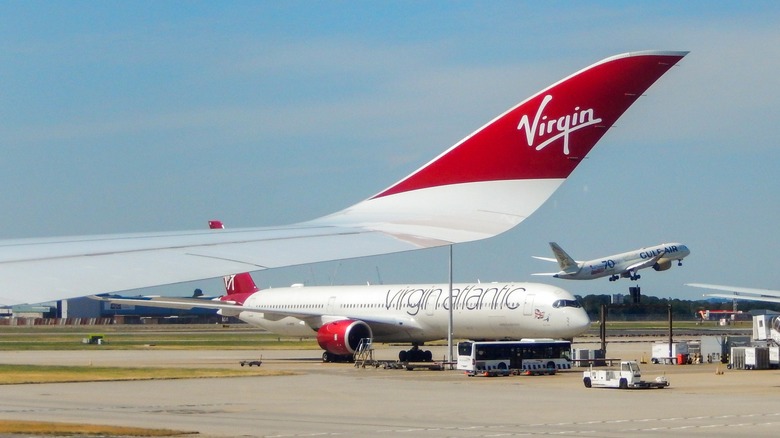Is Sustainable Jet Fuel A Possibility?
Climate change is unarguably one of the biggest existential threats to humanity, and one of the greatest challenges facing people alive today. That temperatures are rising is undeniable. As noted by the United Nations in 2023, average global temperatures are now 1.1 degrees Celsius (33.98 Fahrenheit) higher than they were in the late 19th century, and the cause, unfortunately, is human activity. Specifically, industrialization and the burning of vast amounts of fossil fuels in industries such as transport and aviation. Experts have warned that rising temperatures look set to melt the polar ice caps and raise sea levels, increase the frequency of extreme weather, destroy biodiversity, and drive mass migration as a growing proportion of the planet becomes uninhabitable.
So for the many people concerned about the effect of climate change on both the natural world and human civilization, the story of the first transatlantic flight using entirely sustainable aviation fuel (SAF) is exciting. It was a world first for the aviation industry as it tries to migrate from traditional jet fuel to sustainable alternatives. Previously, it had only succeeded in flying with mixed fuels.
"[SAF is the] only viable solution for decarbonizing long-haul aviation," Virgin Atlantic's chief executive Shai Weiss told The Guardian, adding: "It's taken radical collaboration to get here and we're proud to have reached this important milestone, but we need to push further." Sadly, campaigners believe that there are major flaws in the aviation industry's plan to go climate-neutral.
Aviation and the Environment
Experts have identified the aviation industry as one of the aspects of modern life that is most in need of reform in the collective task of limiting the effects of climate change. Per Our World in Data, statistics from 2018 show that flying accounts for around 2.5% of global carbon dioxide (CO2) production, or over 1 billion tons — double the amount it produced in the mid-1980s. As such, political entities such as the European Union are increasingly searching for ways to limit the industry's environmental footprint, including via carbon offset schemes like mass tree planting. Meanwhile, climate change campaigners encourage people to limit flying or give it up altogether.
But it's not all one-way traffic. As noted by Eurocontrol, it is now believed that were climate change allowed to continue unmitigated, the effects would be devastating for the aviation industry. In particular, increasingly severe weather conditions in many parts of the globe will cause major disruption to its services.
The dawn of sustainable aviation fuel
It is no surprise, then, that the aviation industry is looking for new ways to curb CO2 emissions, and that the concept of a sustainable fuel source is considered by some as a landmark achievement for the industry. According to the International Air Transport Association (IATA), SAF is the term used for any aviation fuel not derived from traditional fossil fuel sources. VS100 — the first transatlantic SAF flight that flew from London Heathrow to New York and was operated by Virgin Atlantic — used a fuel made of organic waste products including tallow, or animal fat, (per The Guardian).
Now that Virgin Atlantic has proven that flying long distances on 100% SAF fuel is both possible and safe, sustainability experts within the transport sector say that the next step is to scale SAF. Such expansion would be part of a larger push to make the aviation industry reach net zero in terms of carbon emissions by 2050 at the latest.
Objections
In the wake of VS100's successful transatlantic flight, those involved in the project at Virgin Atlantic were keen to mark the event as the dawning of a new era of sustainable aviation and a victory in the fight against climate change. The sentiment was echoed by the British government, which claimed the achievement represents a step toward "guilt-free" flying (per The Guardian).
But not everyone is convinced that SAF represents the breakthrough that some of its stakeholders suggest. Critics claim that there is no existing technology to scale its production and distribution to the levels needed to hit net zero carbon emission targets within the timeframe required. Experts say that biofuels should instead be diverted into other sectors, and that the answer to lowering the carbon footprint of the aviation industry is to simply reduce flying. France is now upping taxes on aviation and intends to use the funds to improve greener transport options, such as rail.
Nevertheless, the IATA says SAF remains central to the aviation industry's carbon-cutting efforts and is useable in the current generation of commercial airliners. In 2022, Simple Flying reported that United Airlines had ordered 50 million gallons of SAF to fuel flights from Amsterdam.



